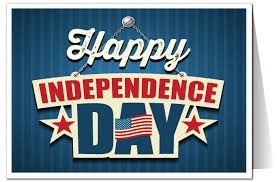Firework Safety-
For most of us, the Fourth of July is a time to enjoy the company of family and friends, having fun and creating memories – whether at home or away in Oklahoma.
But for some families, the holiday is a nightmare. Homes each year in Oklahoma are damaged by wayward fireworks. Thousands of people are injured in accidents.
At Freeland Insurance, we want your holiday to be happy, but also safe. So here are some tips to help you protect yourself and your property on the Fourth.
Protecting yourself (and others)
- To minimize the risk of injury, don’t use consumer fireworks. Attend a public display conducted by professionals in your city or elsewhere.
- If using consumer fireworks, always follow instructions. Do not attempt to re-light “duds” or create homemade fireworks.
- Never let children handle or light fireworks. Even sparklers, which burn at more than 1,000 degrees, can cause third-degree burns. Kids under the age of 15 account for approximately 40% of fireworks injuries, according to the U.S. Fire Administration.
- A responsible adult should always be present when children – even teenagers – are around fireworks. More than half of fireworks injuries happen to those younger than 20 years old.
Protecting your home
- According to the National Fire Protection Association, the best way to protect your home is to not use fireworks at home.
- Remember, fireworks can cause grass fires and other types of blazes as well. Make sure you light fireworks in a safe area, away from homes and buildings, as well as other combustible material. Keep a fire extinguisher nearby in case of emergency.
- Look out for tree limbs or bushes that could catch fire. Trimming vegetation to keep it away from your home is a good idea anyway, but it could save you from a catastrophic fire on the Fourth of July.
- If your gutters have accumulated leaves, pine needles or other flammable material, clean them before using fireworks near your home.
- Finally, if you won’t be home on the holiday, ask a neighbor to keep an eye on your house if others in your neighborhood will be using fireworks.
With some common sense and planning, the Fourth of July can be both safe and enjoyable for everyone. Whether you’re staying at home or heading out, we hope you have a wonderful time celebrating our independence!

 Click to Call
Click to Call Get Directions
Get Directions
